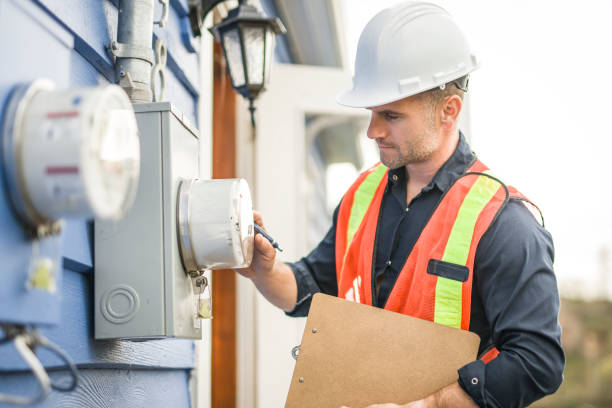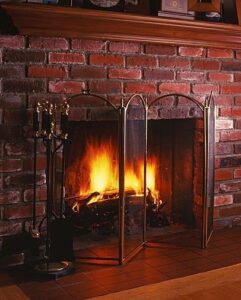As a handyman company operating in Miami, I often encounter homeowners who underestimate the importance of simple repairs that can significantly improve home safety. These minor fixes not only enhance the overall security of a residence but also provide peace of mind for families. In this article, I will share some straightforward repairs to consider that can elevate the safety of your home, ensuring that you and your loved ones feel secure in your living environment.
Identifying the Risks: Why Home Safety Matters
Home safety should never be taken lightly. Every year, thousands of accidents occur in homes, many of which could have been prevented with a few simple repairs. From slippery floors to faulty electrical systems, hazards abound. It is essential to identify and address these risks proactively. Investing time in simple repairs not only protects your family but also enhances the value of your property.
Common Safety Hazards in the Home
- Slips and Falls: Wet floors, loose rugs, or clutter can create dangerous situations.
- Fire Hazards: Old wiring, overloaded circuits, and malfunctioning smoke detectors can lead to devastating fires.
- Carbon Monoxide Poisoning: Faulty appliances or lack of ventilation can increase the risk of carbon monoxide buildup.
- Inadequate Lighting: Poorly lit areas can lead to accidents and hinder visibility, especially at night.
Simple Repairs to Improve Home Safety
Now that we understand the risks, let’s dive into some simple repairs that can markedly improve home safety.
1. Secure Loose Railings
Loose railings on stairs or balconies can pose a serious threat, especially for children and the elderly. By tightening screws or adding brackets, you can ensure that railings are sturdy and reliable. This simple fix can prevent falls and injuries.
2. Install Non-Slip Mats
Bathrooms and kitchens are notorious for slippery surfaces. Installing non-slip mats in these areas can significantly reduce the risk of falls. Make sure to choose mats that are waterproof and have a good grip on the floor.
3. Check Smoke and Carbon Monoxide Detectors
Regularly testing smoke and carbon monoxide detectors is crucial. These devices are your first line of defense against fires and dangerous gas leaks. Replace batteries at least once a year and ensure that the units themselves are replaced every 5 to 10 years, depending on manufacturer recommendations.
4. Fix Electrical Issues
Flickering lights, tripped circuit breakers, and outlets that spark are signs of electrical problems that should not be ignored. These issues can lead to electrical fires. Hiring a licensed electrician to assess and repair any electrical issues is a wise investment in your home’s safety.
5. Maintain Outdoor Walkways
Your outdoor space should be just as safe as your indoor environment. Regularly inspect and repair walkways, ensuring that they are free of cracks, holes, or overgrown vegetation. This simple maintenance can prevent trips and falls.
6. Improve Outdoor Lighting
Dark areas around your home can attract unwanted intruders and lead to accidents. Installing motion-sensor lights or ensuring that existing outdoor lights are functional can enhance safety. Not only will this deter potential burglars, but it will also make it easier for you to navigate your property at night.
Additional Considerations for Home Safety
While the repairs mentioned above are essential, there are additional measures you can take to further enhance safety in your home.
1. Create an Emergency Plan
Having an emergency plan in place can save lives. Discuss potential emergencies with your family, such as fires or natural disasters, and establish a safe meeting point outside the home. Practice evacuation drills to ensure everyone knows what to do in case of an emergency.
2. Install Child Safety Locks
If you have young children, it’s crucial to keep hazardous items out of reach. Installing child safety locks on cabinets that contain cleaning supplies or medications can prevent accidental poisonings.
3. Regularly Inspect Home Security Systems
If you have a home security system, make it a habit to check that it’s functioning correctly. Ensure that cameras are operational, alarms are set, and sensors are working. A well-maintained security system is your best defense against intruders.
Frequently Asked Questions
What are the most common household safety hazards?
Common safety hazards include slips and falls, fire hazards, and electrical issues. Regular inspections and repairs can mitigate these risks significantly.
How often should I check my smoke detectors?
It is recommended to test smoke detectors every month and replace the batteries at least once a year. The entire unit should be replaced every 5 to 10 years.
What should I do if I notice electrical problems?
If you notice any electrical issues, such as flickering lights or sparking outlets, it is best to contact a licensed electrician immediately. Do not attempt to fix electrical problems on your own.
How can I make my home safer for children?
Installing child safety locks, securing heavy furniture to the walls, and keeping hazardous materials out of reach are effective ways to enhance safety for children.
What are some emergency preparedness tips?
Create an emergency plan with your family, establish a safe meeting point, and practice evacuation drills. Regularly review and update your plan as needed.
By taking the time to address these simple repairs, you not only improve the safety of your home but also create a secure environment for you and your loved ones. Don’t wait for an accident to happen—be proactive and make your home as safe as possible. Call handyman in Miami for a free quote.






